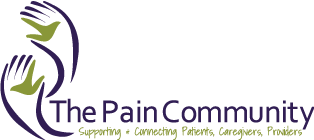-
Teresa Shaffer wrote a new post 10 years, 4 months ago
 It seems like just about every media article talking about pain medications has become a feeding frenzy which reports one side of the story. They take advantage of the uninformed and promote fear with biased and unsubstantiated claims that everyone who is prescribed an opioid medication has or will become addicted to the medications. They feed into the fear that if you have a loved one or friend who is prescribed one of these medications then you had better watch them closely because once addicted they will steal, cheat and lie to get their “fix.” This, my friend, is propaganda [information which is biased or misleading nature and used to promote or publicize a particular political cause or point of view].
It seems like just about every media article talking about pain medications has become a feeding frenzy which reports one side of the story. They take advantage of the uninformed and promote fear with biased and unsubstantiated claims that everyone who is prescribed an opioid medication has or will become addicted to the medications. They feed into the fear that if you have a loved one or friend who is prescribed one of these medications then you had better watch them closely because once addicted they will steal, cheat and lie to get their “fix.” This, my friend, is propaganda [information which is biased or misleading nature and used to promote or publicize a particular political cause or point of view].I am so sick of reading these articles. I am so angry at all those who continue to suggest, promote and endorse these types of stories to the media in an attempt to influence and sometimes brow beat government agencies and politicians to legislate tougher laws and regulations. They claim “their cause” is to address prescription drug abuse to prevent overdose and death, but their methods are short sighted. The so-called “un-intentional” consequence, to me, seems quite intentional. Why put the onus of substance abuse on people living with pain? We did not create this public health problem nor are most of us misusing, abusing or selling our pain medicine. We are too busy trying the best way we know how to live a worthwhile life with another public health problem—the undertreatment of pain! Why make it harder for the legitimate person with pain to obtain an effective medication needed to lessen their daily agony? Why scare our doctors out of wanting to help treat us? Don’t we have a right for some sense of normalcy in our lives?
You notice there is a lot of information missing from these articles. There is no mention of how pain medications allow some people living with pain to have functional lives. There is no mention of how pain medications allow some people living with pain to continue to work. There is no mention of how pain medications allow some people living with pain to have quality in their life. We want nothing more than to have our pain treated in a manner that allows us to live our lives just like people who have other chronic medical conditions, like heart disease, diabetes, cancer and so on. As with any chronic disease, it is not all about taking medications. As with other diseases, when you have chronic pain, it means a full treatment plan is required to help lessen the pain and regain function. People with pain often use exercise, physical therapy, water therapy, massage and so much more. It is NOT just a pill for every ill.
When someone reads one of these poorly researched and unbalanced articles, I can imagine that they start thinking about a family member or friend who lives with pain. Then, they may question whether that person has real or legitimate pain. I know readers must think that if you are taking an opioid pain medication for pain that you must be addicted to them. It’s no wonder; the definition of addiction as compared to physical dependence is often confused as one in the same and this is incorrect. This information is often touted and reinforced by so-called experts who know little about pain and its management and incorrectly equate pain treatment as all about the medications prescribed.
Please allow me to enlighten those of you who do not know the difference between tolerance, dependence, and addiction. These definitions have been recommended by respected medical societies, like the American Academy of Addiction Medicine (ASAM), the American Pain Society (APS) and the American Academy of Pain Medicine (AAPM).
[bullet_list icon=”check” indent=”20px”]
Tolerance – Tolerance refers to a situation where a medicine becomes less effective over time. (Your body adapts and gets use to it.)
Dependence – Dependence means that a person who has been taking a medication for a long period of time can develop symptoms of withdrawal if the medication is suddenly stopped, the dose is lowered too quickly or another medication is given that reverses the effects. (Your body adapts and gets use to it.) This effect can happen with many medications not just pain medications, like steroids, certain heart medications and anti-depressants.
Addiction – Addiction is a primary, chronic disease of brain reward, motivation, memory and related [nervous system] circuitry (ASAM). It is a condition where there is craving for this substance, the compulsive use despite harm, and impulse control loss of how they use the medication. The person does not care that they are harming themselves or others; they will do whatever it takes to obtain medications. They will engage in unacceptable and unsafe behaviors.[/bullet_list]
If you have a past history or current history of substance abuse the chance you will develop a problem taking opioid medications is higher than someone who does not have that history. Your level of risk should be considered before opioids are recommended. Yet, with open communication and close monitoring by your health care professional, even those at higher risk can take these pain medications more safely.
It is important to emphasize that no matter what your circumstance that these medications can be prescribed appropriately by knowledgeable clinicians and you take the medication safely if you do so as directed and report any problems immediately.
So how do we change this growing stigma against people living with pain? How do we fight back?
We get out there and enjoy our lives. We get out and do what we want to do, when we want to do it. We don’t let the fact that we use a cane, walker, crutches, wheelchair and other medical devices define us as part of the problem of drug abuse.
We stay informed and share our knowledge. When a friend or family member questions about addiction, we make sure we can give them facts and direct them to reliable resources. We must stop all the myths that are out there.
We must fight back with truth. Get angry and use that energy in a positive way. Take the time—NO, MAKE THE TIME and read what is published by the media. Comment back. Give them the facts and remind them of the harm they are contributing to by fueling distortions and misconceptions. Make them learn the other side of the story; offer to be interviewed, submit a letter to the editor, write a blog—take them to task.Together we can make a change for the better. We can help stop this feeding frenzy that is making our lives with pain much more difficult than it has to be. If we don’t, who will?

Amen, Sister!!! Get angry and get active!!! The silence is far too painful.
Agree with Theresa in a big way. Unfortunately we are now seeing a progression of all this to chronic pain isn’t that bad or just doesn’t exist. Several articles are attacking the 2011 IOM report on chronic pain. One of them was titled “Commentary: Exaggerating our pain” A quote from that article ““There are certainly 100 million people who experience back pain and arthritis,” he said. “These are common problems. Is there 100 million who have chronic pain that is as consequential as cancer? No. “You don’t want to over-medicalize something.” (who does he think he is, believing HE can say just how bad my pain is and whether it is worth treating?) The City of Chicago is suing pharmaceutical companies ““They knew—and had known for years—that opioids were too addictive and too debilitating for long-term use for chronic non-cancer pain,” (which we know is an out right lie-opioids work well for many types of pain (and there are studies to support that). Some insurance companies will only pay for 90 days of opioids; MaineCare won’t allow opioids with a few exceptions, Louisiana Medicaid will not treat Chronic pain at all. An organization called Maine collaboration seeks to “teach” doctors Opioids shouldn’t be used for non cancer pain (and doubtful with that) as well as teach “these people” (referring to people with chronic pain) we can’t make all their pain go away. I continue as the Portland Press herald prints mostly only the negative (they supported big time the Maine Collaborative, refusing to print my response) I agree with Theresa especially #3. It is important we put a face on Chronic Pain and not let them get away with “these people” remarks.
Thank you, Petmom1 & Janice R. It continues to boggle my mind how some people who have given themselves the titles of ‘experts” get the media and other people to actually believe everything they say.